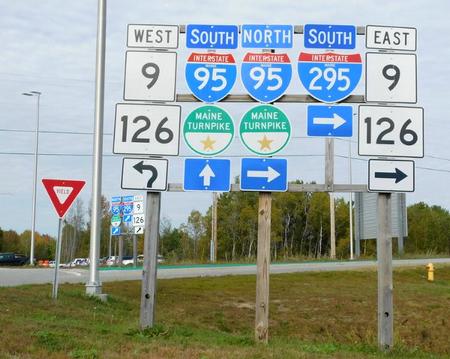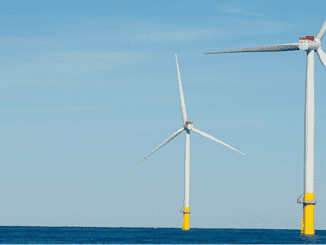AUGUSTA, Maine, April 22, 2021 (ENS) – Maine Governor Janet Mills has signed an executive order requiring that a “clean transportation roadmap” be drawn that will help the state hit its climate goal of rapidly multiplying the number of electric vehicles on its roads by 2030.
The roadmap, due by December, will develop recommendations to enhance the electric vehicle market in the state, expand charging infrastructure, evaluate the effects of charging on electric utilities and the grid, and ensure an equitable and affordable transition to clean transportation for “all people in Maine,” the governor said.
Transportation emissions are the source of more than half of all greenhouse gas emissions in Maine and are a key piece of of the state’s overall effort to curb its emissions by 45 percent by 2030.
Maine is practically starting from scratch. Right now, electric vehicles account for fewer than one percent of registered vehicles in Maine, about 1,000 electric cars and trucks.
The state’s climate action plan, Maine Won’t Wait, estimates the state needs 219,000 light-duty electric cars and trucks on the road by 2030 to meet its emissions targets.
Maine is relying on advancing technology, reductions in cost, increasing consumer demand, and commitments from the federal government, state governments, and major auto manufacturers to accelerate its transition to electric vehicles.

“As electric vehicle technology advances and more models become available to consumers, Maine needs to ensure we have an electric grid that can support this growth,” said Dan Burgess, director of the Governor’s Energy Office. “The clean transportation roadmap will begin to address the grid impacts and rate design needs to support this transition, grow the clean energy economy, and make significant progress against climate change.”
Work on the clean transportation roadmap will be led by the Governor’s Office of Policy Innovation and the Future and the Governor’s Energy Office, in concert with the Maine Department of Transportation, the Maine Department of Environmental Protection, and the Efficiency Maine Trust.
“Growing the number of clean vehicles in Maine to reduce greenhouse gas emissions related to transportation is a key opportunity to address climate change in Maine,” said Hannah Pingree, director of the Governor’s Office of Policy Innovation and the Future, and co-chair of the Maine Climate Council.
“The clean transportation roadmap will make recommendations to ensure Maine consumers have affordable options for EVs, and access to charging infrastructure that meets the needs of rural and urban drivers alike.”
“A clean transportation roadmap is a proactive step that will allow Maine to address future transportation needs while contributing to the work against climate change.” said Bruce Van Note, Commissioner of the Maine Department of Transportation. “Increased consumer interest in electric vehicles coupled with delivery commitments from automakers will help put us on a path to a clean transportation future.”
The governor’s executive order follows the release this week of the state’s first Lead-By-Example plan, which establishes climate, clean energy, and clean transportation targets for state agencies.
To support the state’s clean transportation goals in the Lead-By-Example plan, the Efficiency Maine Trust this week announced the availability of $200,000 of Volkswagen settlement funds to install publicly available electric vehicle charging stations at state office locations.
In 2019, Governor Mills, a Democrat, won the bipartisan support of the Maine Legislature to enact some the nation’s boldest greenhouse gas emissions reductions and renewable energy generation targets, to protect Maine from the effects of climate change and grow a vibrant clean energy economy.
Since then, she has pledged that Maine will aim to achieve carbon neutrality by 2045, and has committed to doubling the state’s clean energy workforce to 30,000 workers by 2030 through increased support of workforce development and training, and emerging energy technologies.
© 2021, Environment News Service. All rights reserved. Content may be quoted only with proper attribution and a direct link to the original article. Full reproduction is prohibited.



